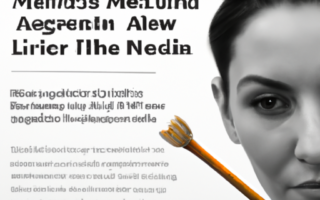In this article, you will discover the key distinctions between pet health insurance and wellness plans. Whether you’re a proud pet owner or considering adopting a furry friend, it’s important to understand the differences between these two types of coverage. Pet health insurance provides financial protection against unexpected accidents or illnesses, while wellness plans focus on preventative care and routine treatments. By understanding the nuances between the two, you can make an informed decision for your beloved pet’s overall well-being.

Coverage
What does pet health insurance cover?
Pet health insurance is designed to cover medical expenses for your pet. This can include coverage for accidents, illnesses, and injuries. Depending on the policy you choose, pet health insurance can cover a wide range of treatments such as surgeries, medications, diagnostic tests, hospital stays, and even rehabilitation therapies.
What does a wellness plan cover?
On the other hand, a wellness plan is focused on preventive care for your pet. This type of plan typically covers routine care expenses such as vaccinations, annual exams, flea and tick prevention, dental cleanings, and other preventive measures. Wellness plans aim to keep your pet healthy and prevent future illnesses or conditions.
Costs
Premiums and deductibles for pet health insurance
Pet health insurance usually involves paying a monthly or annual premium. The premium amount is determined by various factors including your pet’s age, breed, and overall health. Additionally, there might be a deductible, which is the amount you have to pay out of pocket before the insurance coverage kicks in. Higher premiums often result in lower deductibles, and vice versa.
Costs and fees associated with wellness plans
Unlike pet health insurance, wellness plans often require payment of a monthly or annual fee that covers routine preventive care services. The cost of a wellness plan can vary depending on the level of coverage and the specific services included. It’s important to carefully review the plan and understand what services are covered, as some wellness plans may have exclusions or limitations.

Pre-existing Conditions
How pet health insurance deals with pre-existing conditions
Pet health insurance typically excludes coverage for pre-existing conditions. A pre-existing condition is any illness, injury, or condition that your pet has before obtaining the insurance policy. However, it’s important to note that some pet health insurance providers may offer coverage for curable pre-existing conditions after a waiting period. It’s crucial to review the policy’s terms and conditions regarding pre-existing conditions.
Can wellness plans cover pre-existing conditions?
Generally, wellness plans do not cover pre-existing conditions. These plans are focused on preventative care rather than providing coverage for existing health issues. If your pet has a pre-existing condition, it’s best to discuss it with your veterinarian and explore other options for coverage, such as pet health insurance.
Routine Care
Coverage for routine care with pet health insurance
Pet health insurance may offer coverage for routine care services, but it largely depends on the specific policy you choose. Some insurance plans offer optional add-ons or riders that can be purchased to cover routine care expenses like vaccinations, wellness exams, and annual check-ups. However, it’s important to review the policy details and consider the cost-effectiveness of adding routine care coverage to your pet health insurance plan.
Routine care benefits in wellness plans
Routine care is a central part of wellness plans. These plans typically cover preventive services such as vaccinations, flea and tick prevention, annual check-ups, and even dental cleanings. The purpose of a wellness plan is to ensure that your pet receives regular preventive care, which can ultimately contribute to their overall health and well-being.

Emergency Care
Coverage and benefits for emergency care with pet health insurance
Pet health insurance often provides coverage for emergency care and unexpected accidents. This can include coverage for emergency veterinary visits, surgeries, hospital stays, medications, diagnostic tests, and other necessary treatments. Having pet health insurance can provide peace of mind knowing that you’ll have financial assistance in case of a veterinary emergency.
Emergency care coverage in wellness plans
Wellness plans typically do not cover emergency care expenses. These plans are focused on routine preventive care rather than emergency situations. It’s essential to have pet health insurance if you want to ensure coverage for potential emergency medical expenses for your pet.
Specialty and Advanced Care
Specialty and advanced care coverage with pet health insurance
When it comes to specialty and advanced care, pet health insurance can offer coverage for specialized treatments and procedures. This can include coverage for visits to veterinary specialists, advanced imaging (such as MRI or CT scans), oncology treatments, and even rehabilitation therapy. Pet health insurance aims to provide coverage for a broad range of medical needs, including specialized care.
Inclusion of specialty and advanced care in wellness plans
Wellness plans typically do not extend their coverage to include specialty and advanced care. These plans focus primarily on routine preventive care rather than complex or specialized treatments. If you anticipate that your pet may require advanced care, it’s advisable to consider pet health insurance that offers coverage for such services.
Wellness Services
Additional wellness services provided by pet health insurance
In addition to medical coverage, some pet health insurance plans may offer additional wellness services. These can include access to 24/7 telehealth services, behavioral training assistance, and even coverage for alternative therapies like acupuncture or chiropractic care. These wellness services are designed to support your pet’s overall well-being and provide comprehensive care beyond basic medical treatments.
Wellness services included in wellness plans
Wellness plans are specifically designed to provide a comprehensive range of preventive care services. These plans often include routine vaccinations, wellness exams, dental cleanings, parasite prevention, and certain diagnostic tests. By enrolling in a wellness plan, you can ensure that your pet receives regular preventive care, promoting their long-term health and reducing the risk of potential health issues.
Claim Process
Pet health insurance claim process
The claim process for pet health insurance typically involves submitting a claim form along with any relevant documentation, such as invoices or receipts from the veterinary visit. Once submitted, the insurance provider will review the claim and determine the eligible reimbursement amount based on the coverage outlined in the policy. Some pet health insurance companies may have online portals or mobile apps, making the claim submission process more convenient.
Claim process for wellness plans
The claim process for wellness plans is often simplified compared to pet health insurance. Since wellness plans usually cover routine preventive care services, the claim process may involve submitting proof of payment for eligible services directly to the wellness plan provider. It’s essential to familiarize yourself with the specific claim submission requirements outlined by your wellness plan provider to ensure a smooth reimbursement process.
Limits and Restrictions
Limits and restrictions for pet health insurance
Pet health insurance policies may have certain limitations and restrictions. These can include annual coverage limits, breed-specific exclusions, waiting periods before certain conditions are covered, and even age restrictions. It’s essential to carefully review the policy terms and conditions, paying attention to any limits or restrictions that may impact your pet’s coverage.
Limits and restrictions in wellness plans
Wellness plans may also have limitations and restrictions. Some common restrictions can include a maximum annual benefit limit, limitations on the number of covered visits or procedures within a specified period, and exclusions for certain services or treatments. Understanding these limits and restrictions is crucial in determining the level of coverage and value provided by the wellness plan you choose.
Choosing the Right Option
Factors to consider when choosing pet health insurance
When choosing pet health insurance, several factors should be considered. These include your pet’s age and breed, your budget, the coverage offered by different insurance providers, and the policy’s terms and conditions. It’s important to evaluate the coverage limits, premiums, deductibles, and any exclusions or waiting periods that may apply. Additionally, reading reviews and seeking recommendations can help you make an informed decision about the best pet health insurance option for your pet.
Factors to consider when choosing a wellness plan
When considering a wellness plan, it’s important to evaluate the specific preventive care services included in the plan and determine if they align with your pet’s needs. Consider the cost of the plan, the frequency and extent of coverage, and any restrictions or exclusions that may apply. Additionally, evaluate your pet’s overall health and determine if a wellness plan will provide the necessary preventive care to maintain their well-being.
In conclusion, pet health insurance and wellness plans serve different purposes in ensuring your pet’s overall health and well-being. Pet health insurance focuses on providing coverage for accidents, illnesses, emergencies, and specialty care, while wellness plans primarily cover routine preventive care services. Both options have their benefits and considerations, so it’s essential to assess your pet’s needs, budget, and specific circumstances when choosing the most suitable option for their healthcare.


